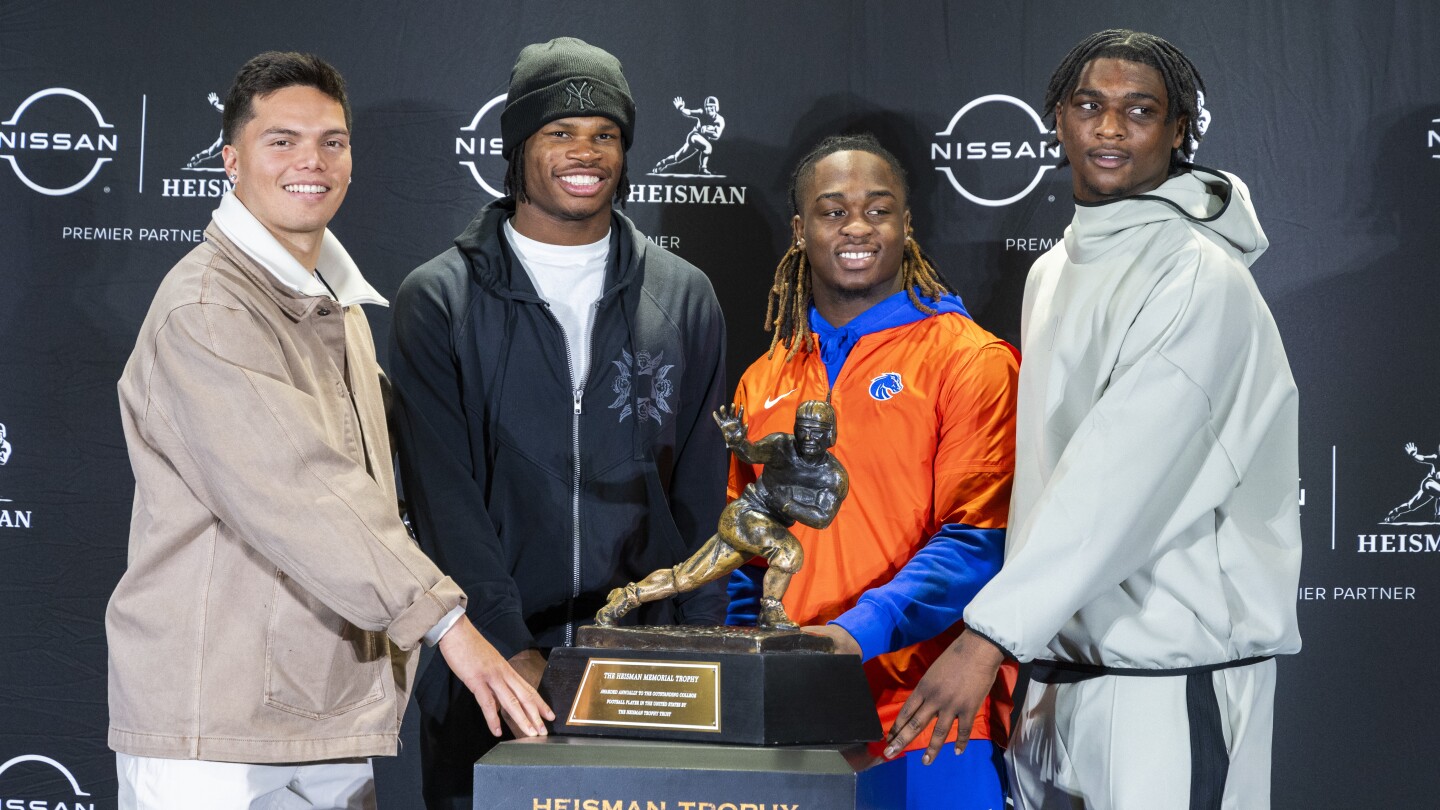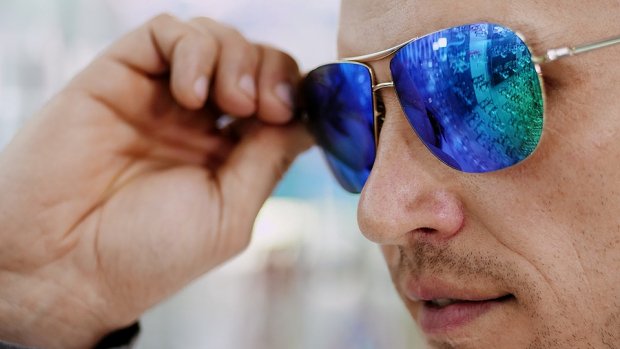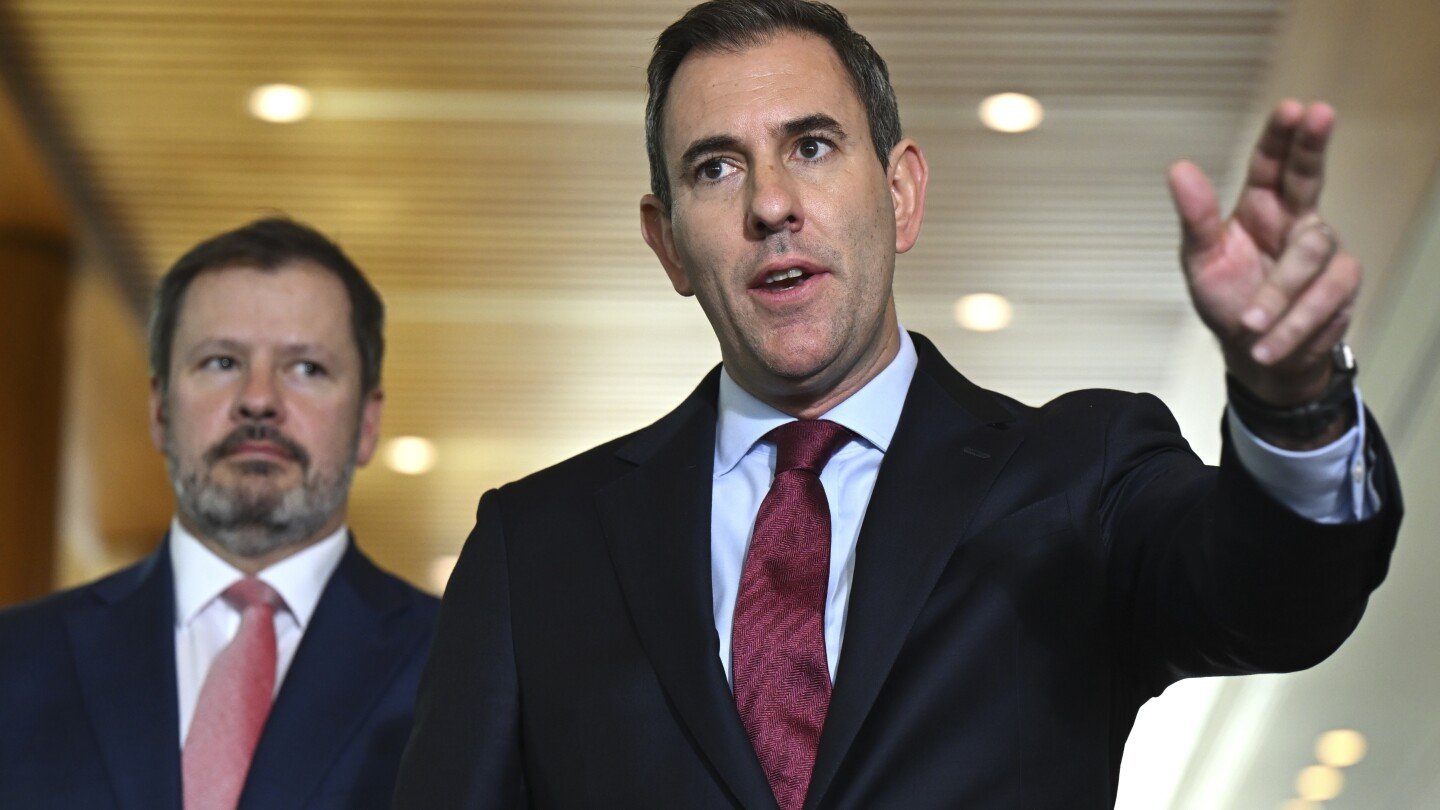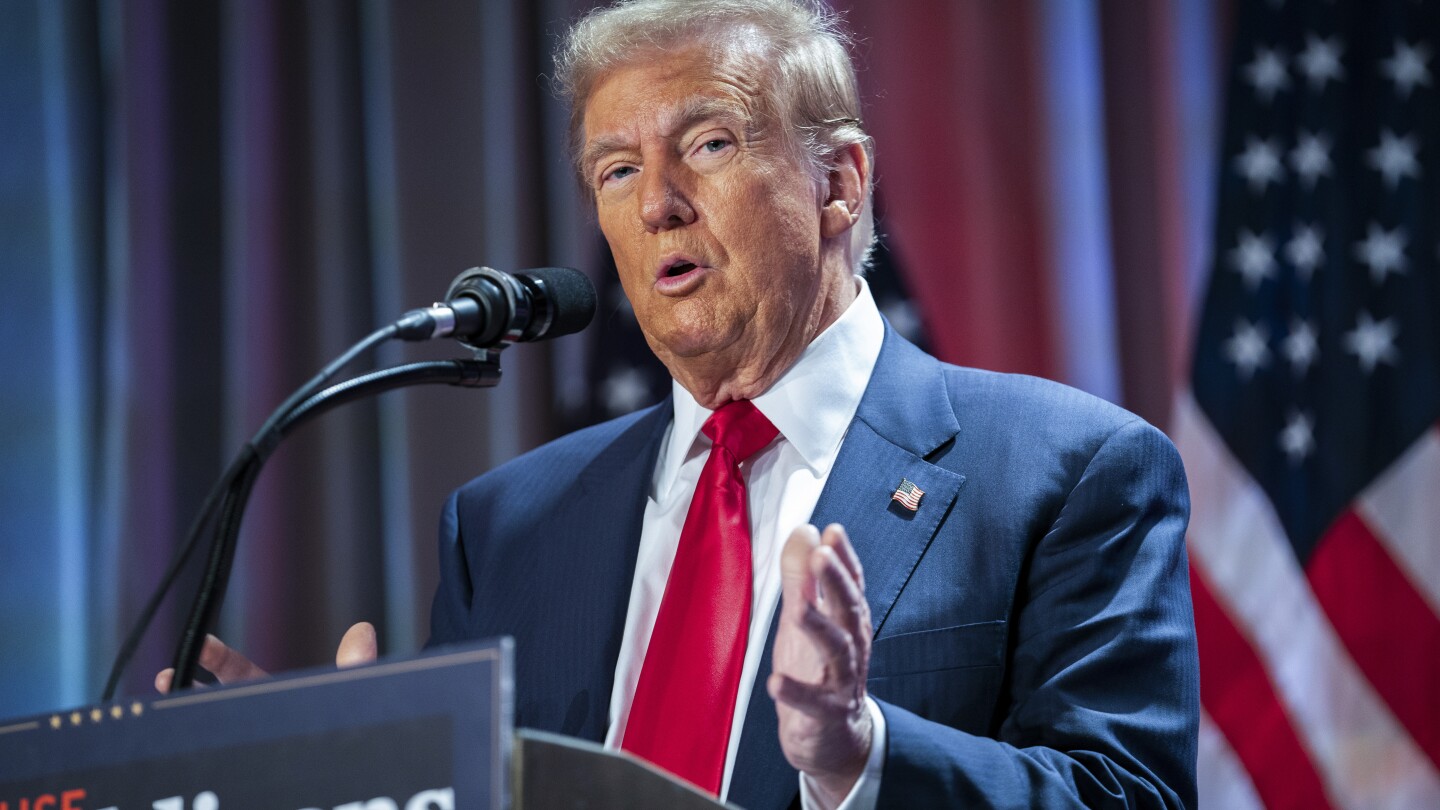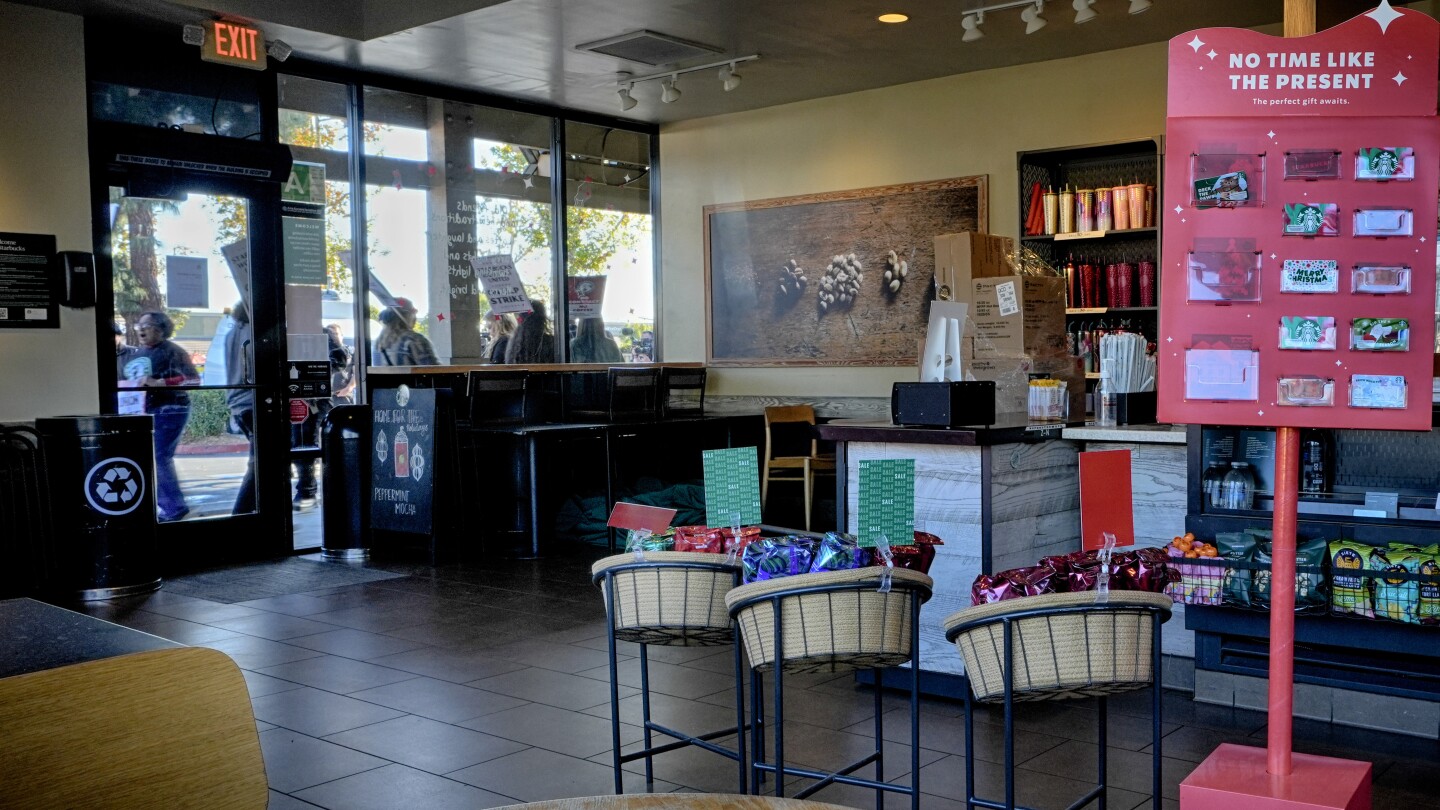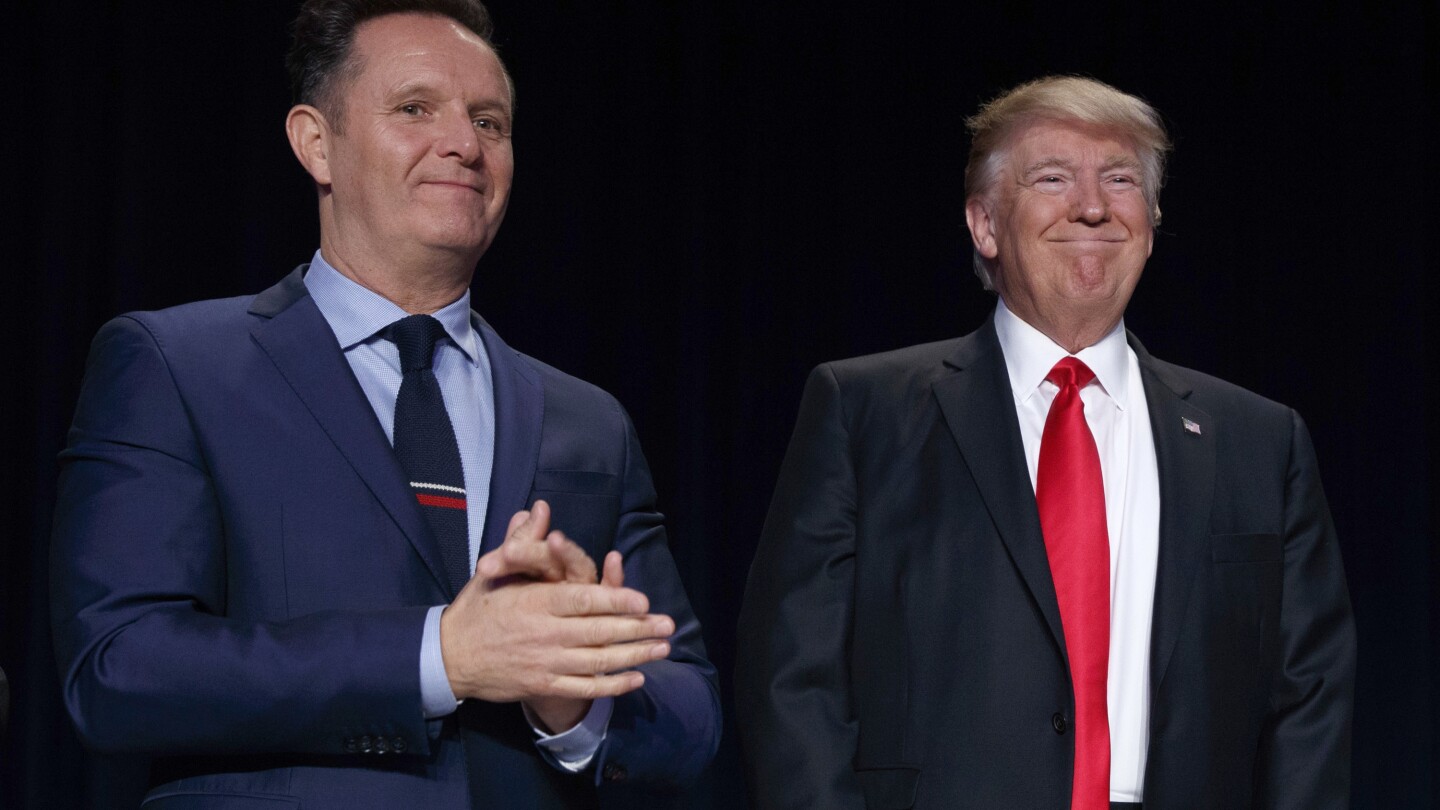NEW YORK (AP) — Same iconic statue, very different race.
With two-way star Travis Hunter of Colorado and Boise State running back Ashton Jeanty leading the field, these certainly aren’t your typical Heisman Trophy contenders.
Sure, veteran quarterbacks Dillon Gabriel from top-ranked Oregon and Cam Ward of No. 15 Miami are finalists for college football’s most prestigious award as well, but the 90th annual ceremony coming up Saturday night at Lincoln Center in New York City offers a fresh flavor this year.
To start with, none of the four are from the powerhouse Southeastern Conference, which has produced four of the past five Heisman winners — two each from Alabama and LSU.
Jeanty, who played his home games for a Group of Five team on that peculiar blue turf in Idaho more than 2,100 miles from Manhattan, is the first running back even invited to the Heisman party since 2017. After leading the country with 2,497 yards rushing and 29 touchdowns, he joined quarterback Kellen Moore (2010) as the only Boise State players to be named a finalist.
“The running back position has been overlooked for a while now,” said Jeanty, who plans to enter the 2025 NFL draft.
“There’s been a lot of great running backs before me that should have been here in New York, so to kind of carry on the legacy of the running back position I think is great. … I feel as if I’m representing the whole position.”
With the votes already in, all four finalists spent Friday conducting interviews and sightseeing in the Big Apple. They were given custom, commemorative watches to mark their achievement.
“I’m not a watch guy, but I like it,” said Hunter, flashing a smile.
The players also took photos beneath the massive billboards in Times Square and later posed with the famous Heisman Trophy, handed out since 1935 to the nation’s most outstanding performer.
Hunter, the heavy favorite, made sure not to touch it yet.
A dominant player on both offense and defense who rarely comes off the field, the wide receiver/cornerback is a throwback to generations gone by and the first full-time, true two-way star in decades.
On offense, he had 92 catches for 1,152 yards and 14 touchdowns this season to help the 20th-ranked Buffaloes (9-3) earn their first bowl bid in four years. On defense, he made four interceptions, broke up 11 passes and forced a critical fumble that secured an overtime victory against Baylor.
Hunter played 688 defensive snaps and 672 more on offense — the only Power Four conference player with 30-plus snaps on both sides of the ball, according to Colorado research.
Call him college football’s answer to baseball unicorn Shohei Ohtani.
“I think I laid the ground for more people to come in and go two ways,” Hunter said. “It starts with your mindset. If you believe you can do it, then you’ll be able to do it. And also, I do a lot of treatment. I keep up with my body. I get a lot of recovery.”
Hunter is Colorado’s first Heisman finalist in 30 years. The junior from Suwanee, Georgia, followed flashy coach Deion Sanders from Jackson State, an HBCU that plays in the lower level FCS, to the Rocky Mountains and has already racked up a staggering combination of accolades this week, including The Associated Press player of the year.
Hunter also won the Walter Camp Award as national player of the year, along with the Chuck Bednarik Award as the top defensive player and the Biletnikoff Award for best wide receiver.
“It just goes to show that I did what I had to do,” Hunter said.
Next, he’d like to polish off his impressive hardware collection by becoming the second Heisman Trophy recipient in Buffaloes history, after late running back Rashaan Salaam in 1994.
“I worked so hard for this moment, so securing the Heisman definitely would set my legacy in college football,” Hunter said. “Being here now is like a dream come true.”
Jeanty carried No. 8 Boise State (12-1) to a Mountain West Conference championship that landed the Broncos the third seed in this year’s College Football Playoff. They have a first-round bye before facing the SMU-Penn State winner in the Fiesta Bowl quarterfinal on New Year’s Eve.
The 5-foot-9, 215-pound junior from Jacksonville, Florida, won the Maxwell Award as college football’s top player and the Doak Walker Award for best running back. Jeanty has five touchdown runs of at least 70 yards and has rushed for the fourth-most yards in a season in FBS history — topping the total of 115 teams this year. He needs 132 yards to break the FBS record set by Heisman Trophy winner Barry Sanders at Oklahoma State in 1988.
In a pass-happy era, however, Jeanty is trying to become the first running back to win the Heisman Trophy since Derrick Henry for Alabama nine years ago. In fact, quarterbacks have snagged the prize all but four times this century.
Gabriel, an Oklahoma transfer, led Oregon (13-0) to a Big Ten title in its first season in the league and the No. 1 seed in the College Football Playoff.
The steady senior from Hawaii passed for 3,558 yards and 28 touchdowns with six interceptions. His 73.2% completion rate ranks second in the nation, and he’s attempting to join quarterback Marcus Mariota (2014) as Ducks players to win the Heisman Trophy.
“I think all the memories start to roll back in your mind,” Gabriel said.
Ward threw for 4,123 yards and led the nation with a school-record 36 touchdown passes for the high-scoring Hurricanes (10-2) after transferring from Washington State.
The senior from West Columbia, Texas, won the Davey O’Brien National Quarterback of the Year award and is looking to join QBs Vinny Testaverde (1986) and Gino Torretta (1992) as Miami players to go home with the Heisman.
“I just think there’s a recklessness that you have to play with at the quarterback position,” Ward said.
___
Get poll alerts and updates on the AP Top 25 throughout the season. Sign up here. AP college football: https://apnews.com/hub/ap-top-25-college-football-poll and https://apnews.com/hub/college-football

